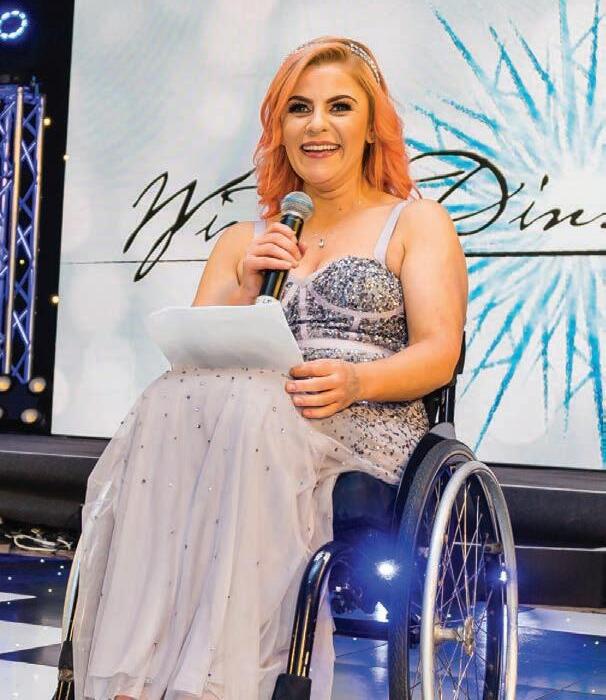
3 minute read
SPINALLIFE
ACCESSIBLE TRAVEL FUND 2018/19
The Accessible Travel Fund aims to improve door to door journeys across all modes of transport, enhancing the travelling experience of disabled people and others facing mobility or access challenges, including passengers who have hidden impairments.
Advertisement
The fund supports the Accessible Travel Framework for Scotland, whose purpose is to:
•Support disabled people’s rights by removing barriers and improving access to travel.
•Ensure disabled people are fully involved in work to improve all aspects of travel.
There were five successful projects funded:
• Values into Action Scotland: Let’s get moving is a travel training project designed and delivered for, and with people with learning difficulties and or autism.
The social nights occur once a month, and we rely on fundraising to keep them going. People and organisations have been very generous, and local businesses have nominated the social nights as their charitable cause. Some of our members have also donated to the social nights, asking their friends and family to donate to us rather than buy presents for their wedding anniversary. This generous help ensures we can have food and snacks and entertainment such as live music, quizzes and bingo on the night. Some nights are themed, such as Burns Night and Halloween with Laura going all out to arrange live folk music or decorating the day room at the QENSIU with a host of spooky characters. Our volunteers Andy and Wendy give their time to support these events every month, helping to give out food and drink and enjoying the company of those who are present. The nursing staff look forward to the nights too and help us drum up the patients to attend. Ex-patients and family members have donated raffle prizes.
At Christmas time we team up with the QENSIU and Horatios Garden to make it an extra special event that we all contribute different things to. Funding ensures we can supply each patient in Phillipshill and Edenhall with a bag full of goodies to help them celebrate the festive period while still undergoing their rehabilitation in hospital. Last year we gave away an Amazon Tablet and hope to do the same this year.
The social nights allow the patients to have a break from rehab and spend some relaxed time away from the wards with their families and friends.
“I actually forgot that I was in a hospital for those few hours and I really enjoyed myself. It allowed me to have a break from the everyday anxieties that I have.”
Spinal Injuries Scotland have been honoured to put these nights on for the last 5 years, and we believe that they are an important part of rehabilitation for a Spinal Cord Injury. We are looking forward to the next five years of social nights!
After a year-long period of co-production our first annual delivery plan was published in June this year. The plan sets out our 8 priority areas for delivery this year. These are as follows:
•Passenger Assistance
•Aviation
•Bus – fully accessible information, infrastructure and design
•Signs, Wayfinding and Information
•Thistle Assistance
•Ensure Clear Pathways
•Taxi and Private Hire Cars
•Hate Crime Charter
This year’s plan aligns to the provisions within the Transport (Scotland) Bill which contains vital measures to aid accessibility and the review of Scotland’s National Transport Strategy setting out a 20 year plan to meet the vision that: “Scotland will have a sustainable, inclusive and accessible transport system helping to deliver a healthier, fairer and more prosperous nation for communities, businesses and visitors.”
• Neatebox App Development: The project designers have developed an App that allows passenger assistance notifications for those with a visual impairment and wheelchair users to be notified of available wheelchair spaces on First Bus, who are joint funders of the project.
• Go Upstream: Making Connections the Space In-between. Many journeys rely on people changing from one transport mode to another but connections can present challenges in the spaces between services. This project will concentrate on ferry terminals and rail services in West of Scotland.
• Thistle Card: This project seeks to identify and understand in detail the barriers faced by disabled people when travelling. Explore the extent to which these barriers affect disabled people’s travel plans and modal choices for travelling and to develop door to door journey planning solutions that help alleviate these barriers
• Stirling HSCP: This project seeks to recruit a project worker to further develop and promote our Independent Travel Training (ITT) programme and widen to other groups including younger people, people with dementia and autism.
There will be an update in 2020.








